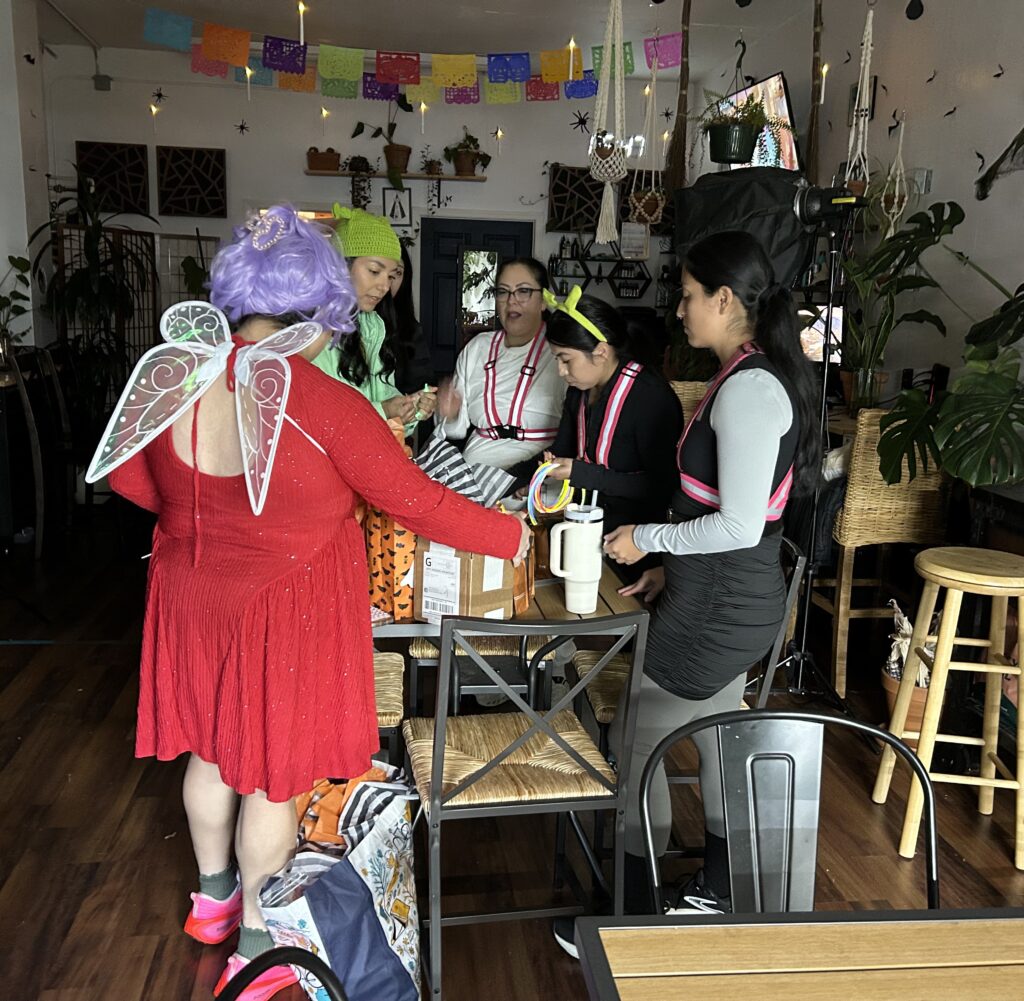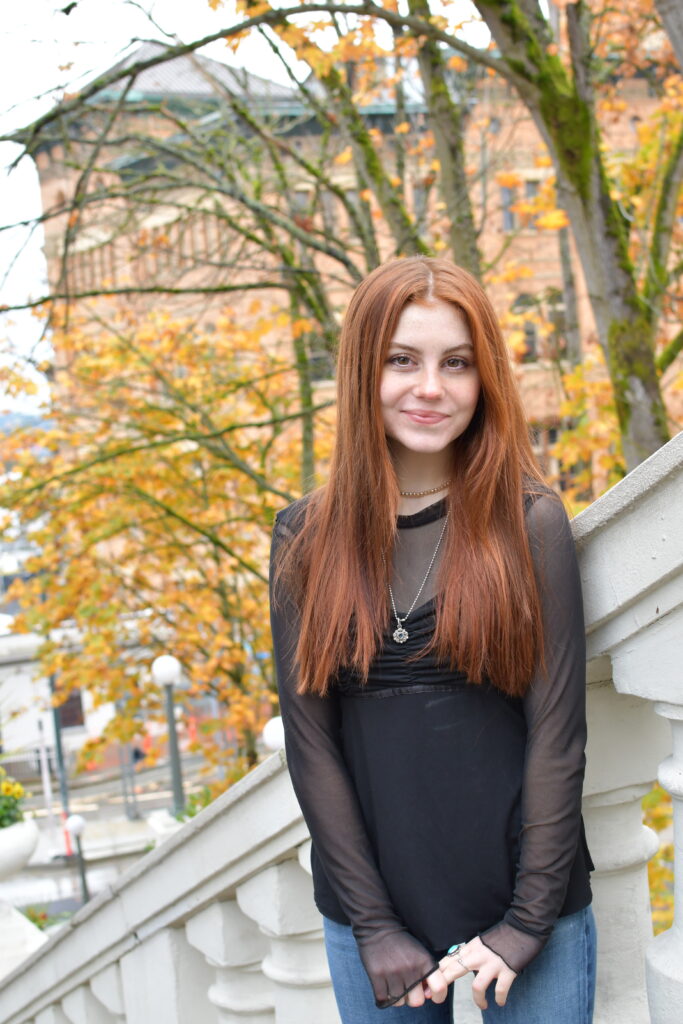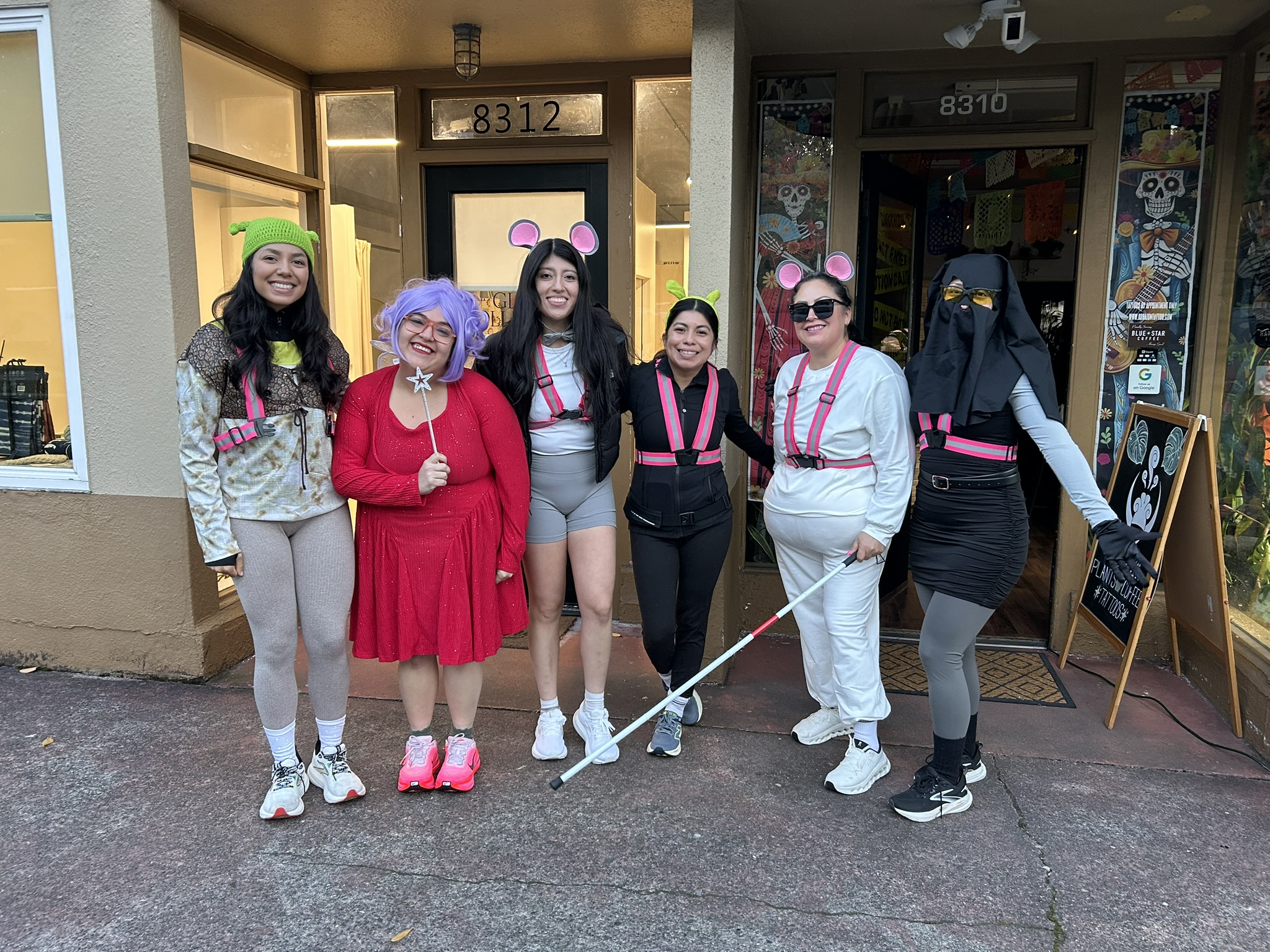Caring for one’s body may start with movement, but All Strides Latines is showing how important social connection is in the process, too.
Bringing cultural understanding into a fitness space is not only good for individual feelings of belonging. According to the run clubs’ members, it also expands community with inclusive, engaging ways to participate in group exercise, fostering Latine culture in Seattle.
All Strides Latines was founded by Alexis Rodriguez in January. New to both running and Seattle, Rodriguez created a space for herself and others after posting a TikTok captioned “Where are all the other latinas that like to run?”
The post blew up and suddenly the All Strides Latines running club was born, but it would become so much more than a run group.
“I was feeling a little bit out of place. Being from LA, I never felt out of place” said Rodriguez.
Reminiscing on how she felt in Los Angeles, Rodriguez said, “There’s something about going to the store and speaking Spanish with the cashier, or just knowing that they understand your identity. Nothing needs to be said, nothing needs to be pointed out, they just know.”
“I’ve been upset that I don’t have friends and community here and now here is the internet being so open, I feel like I had to do something with it.”
Rodriguez wanted a place to socialize with and encourage the Latine running community. All Strides Latines is an intentional space, one meant for all women, queer and femme presenting folks in the Latine community to feel comfortable growing together.
She said she had been to two other run clubs, and that’s what motivated her to create a new one. “I remember attending those run clubs and feeling out of place,” said Rodriguez. “All of these people are seasoned runners, they’re all white, I don’t belong here. So I never went back.”
Runners at an ASL event on Oct. 30–Espooky Run–seemed to agree with her sentiment. As they assembled gift bags before the event they chatted about what the club has given them and what it can do for other latines.
“There are very few wellness spaces for Latinos,” said Jackie Estrada, originally from the Yakima Valley. Another participant, Deborah Solis, noted that although there are pockets of Latine community in Seattle it’s challenging to find spaces for fitness rather than those centered around drinking or going out.
“Although that can be a fun time,” Sofia Larrondo agreed,”it’s nice to have an intentional group like All Strides Latines since so many running groups are intimidating and primarily white.”
As the group, including Kathy Matinez, Abi Serna, Maria Cid, and Sofia Larrondo, prepped, their connection was apparent within a space filled with joy.
“I was never a runner,” Kathy Martinez, “but now it’s fun.” Martinez is originally from Los Angeles, and similar to Rodriguez, she said sharing the club’s story and individual stories is important for motivation.
The whole group emphasized how beneficial it is to have people behind you cheering you on, especially as runners.
All Strides Latines has taken something that seems pretty scary to some–running for fun and with a bunch of new people–and morphed it into a celebration. Previous events have included networking and collaboration opportunities, such as a boxing event with Corporate Pero Latinos, and social outings like Comadres y Calabazas, held at Stocker Farms pumpkin patch.
People come to strengthen themselves and the Latine community in Seattle.

After the Espooky Run the group enjoyed coffee from Korazón Collective and listened to a live podcast reading with Espooky Tales, a Latina run folklore and haunts podcast. Korazón Collective is a Latine-run space that has tattoos, plants, coffee and hosts community events.
“How can we elevate this even more and give back to our own community and other communities of color?” Rodriguez asked herself this in the early days of the run club? The club answered: From supporting local outreach groups, such as Alimentando al Pueblo, a South King County non-profit that provides meals and cultural building opportunities, to simply choosing latine and BIPOC owned businesses for post-run hangouts, the run club is more than just a place for exercise.
A lot of queer individuals and women of color are not represented in fitness. Rodriguez noticed that the club’s original name, Seattle Latinas Run Club, didn’t fully encompass who it was for. Rebranding to All Strides Latines emphasizes inclusion of folks who are femme and queer or don’t identify with a binary. It was a more accurate and inclusive description, said Rodriguez.
All Strides Latines wants to make sure that people know the Latine community is here and strong, especially amidst inhumane actions under the current federal administration, said Rodriguez.
“Everything is designed to make us feel hopeless, like we don’t have support, like we’re alone,” said Rodriguez. “People come here whether it’s an escape or a place to feel supported.”
When fitness works hand in hand with cultural understanding this in turn will support the health and longevity of the community. Belonging no doubt contributes to motivation and the continuous turnout at ASL events is the manifestation of that.
All Strides Latines events are frequently posted on their social media @allstrideslatines. They are a low cost to sign up for, typically free or around $10 a ticket, so people have different options to fit into their schedules.
All Strides Latines now has over 4,500 followers on social media and holds multiple events each month, selling out quickly. “We are all strides of life, we come from different paths and somehow we all found each other in Seattle, when we needed each other the most,” Rodriguez said.
Ada Capecchi is a fourth-year student pursuing a double major in Journalism and Public Interest Communications along with Interdisciplinary Visual Arts at the University of Washington. Originally from Tacoma, Wa, she hopes to build community and connection through arts opportunities and inclusive events.

